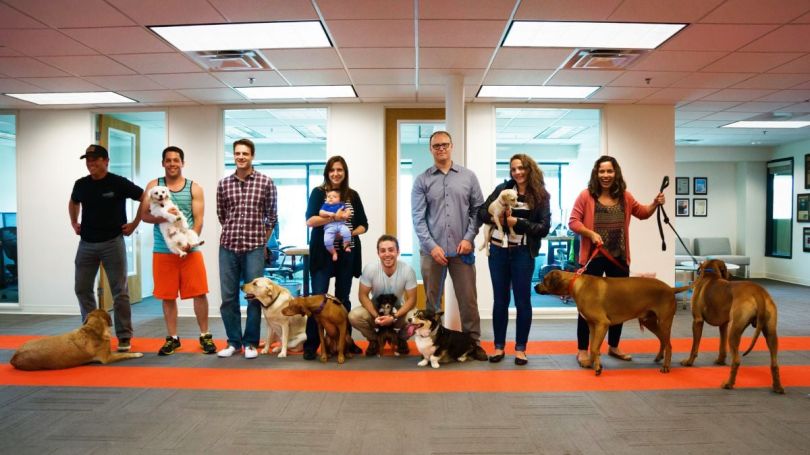Startups all over LA are on the hunt for senior-level engineers, but each company has a different idea of what exactly constitutes "senior-level." We asked hiring managers from four companies what they look for in veteran engineers.

When Edith Reas, Director, Quality Assurance at OpenX, is looking for a senior engineer, she looks specifically at the impact an applicant has had on their environment in the past.
What's different about hiring a senior-level engineer than a mid-level engineer?
The main differentiator is how much the person's accomplishments have impacted the company/organization. Other focuses are independence, pro-activeness and mentorship with a proven track record.
What sort of experience are you looking for?
How did you fail and how did you recover from it or do it differently the next time? It shows great maturity to admit failure and learn from it to apply towards positive results.
From a culture standpoint, what role do you expect a senior-level engineer to play?
They should lead by example by setting high bars and influence.
 Has there been a situation where you decided on an applicant despite a relative lack of experience?
Has there been a situation where you decided on an applicant despite a relative lack of experience?
It's definitely crucial to have the required skill sets for a senior position. However, there have been times when I took a chance on someone with a promotion from within who didn't have the extended experience. That decision came from working with the person and trusting the person's ability. Sometimes, approach and attitude outweigh experience and knowledge. The latter can be earned.
When is an engineer ready to apply for a senior-level role, in your opinion?
The engineer should evaluate how much impact their work has produced for the company/organization.

eSalon.com is using technology to transform the world of beauty. With its tech center and product fulfillment onsite, VP of Technology Aaron Chan looks for someone who understands the role tech plays in eSalon's structure.
What's different about hiring a senior-level engineer than a mid-level engineer?
We expect a senior to be someone who can set a good example in the work that they do and the quality of their work. They should also be able to show continuous growth in terms of taking on more responsibility or dealing with new technology.
What sort of experience are you looking for?
We have a unique company where we’re combining the world of beauty along with e-commerce and delivering a customized product. Because it’s a customized product, we also manufacturer the product and do our own fulfillment all in-house.
We’ve leveraged technology to coordinate all these different parts of our business but a lot of our complexity is in the business logic and how touching some part of the code here will affect how the order will come out on the production line or how it gets fulfilled.
We’re looking for someone who is highly technical but also understands how technology can help the business.
Some companies utilize technology for the sake of the technology itself as opposed to which technology is most appropriate to solve whatever it is you are driving towards.

From a culture standpoint, what role do you expect a senior-level engineer to play?
A senior should be able to work with stakeholders directly without having an intermediary or superior to filter. Someone who can be a face for the development team when we are talking with cross-functional groups. They should also set the tone for how to communicate with other groups and be the example for work habits.
Has there been a situation where you decided on an applicant despite a relative lack of experience?
Yes. We have hired someone who was lacking both in years of experience and technical skill as compared to our initial job specifications. However, this individual demonstrated a good attitude, eagerness to learn and had a solid foundation.
When is an engineer ready to apply for a senior-level role, in your opinion?
When they can show that they can independently lead projects and take on tasks with minimal direction. Also, besides being technical and knowing how to do the project, knowing how the project fits into business.
Why is it so hard to find senior-level engineers?
We have found that a lot of engineers think they are a senior because of their years of experience, but if they haven’t been challenged or learning new things, then they haven’t grown so those years of experience don’t mean a whole lot.

To System1 CTO John Fries, diversity of thought is crucial for the role of senior-level engineer, so much so, that he specifically looks for applicants with differing opinions than his own.
What's different about hiring a senior-level engineer than a mid-level engineer?
Many startups suffer from a kind of "founderitis" where everyone hired is virtually a clone of the founding team. It's natural to want to hire like-minded people, but taken to an extreme this can result in an intellectual monoculture in which everyone shares the same blind spots and makes the same mistakes at the same time. If you are familiar with distributed systems, you know that this can be a recipe for disaster!
One thing that I look for in any engineer, but especially a senior one, is someone whose experiences and opinions are fundamentally different from my own, and who has spent years investing in a unique perspective. If they also enjoy communicating and teaching that perspective to more junior engineers, then that leads naturally to a healthier, more resilient team that everyone benefits from.
From a culture standpoint, what role do you expect a senior-level engineer to play?
We’re very learning and teaching oriented here, and senior engineers play a big role in mentoring more junior engineers. One of the key ways that happens at OpenMail is through code review. All production code goes through the review process, providing an opportunity for engineers to give feedback and ask specific questions. It’s fun writing great code, and even more fun to have an audience that appreciates it!
Has there been a situation where you decided on an applicant despite a relative lack of experience?
Ultimately, what we look for in junior engineers is curiosity, strong CSand quantitative fundamentals, and a willingness to learn from others. Experience is valuable, but everyone has to start somewhere. If we didn’t hire junior engineers, then how would anyone become a senior engineer?
When hiring a junior engineer, I also take into account the current ratio of senior to junior engineers on the team. Is there currently a senior engineer with the capacity to mentor the junior engineer? If not, the junior engineer will likely struggle. Conversely, great senior engineers love to teach, so if the ratio of senior to junior gets too high, then we’re missing out on an opportunity to pass along what we know.
 What sort of experience are you looking for?
What sort of experience are you looking for?
People tend to overvalue industry-specific or technology-specific experience. I’ve observed that smart, curious people with good CS fundamentals, a quantitative mindset and strong debugging skills can get up to speed pretty quickly on a broad variety of projects.
When is an engineer ready to apply for a senior-level role, in your opinion?
In "iWoz," the biography of Steve Wozniak, he describes the many projects that ultimately prepared him to invent the Apple I. Fascinatingly, he did not have any kind of plan to invent the personal computer, but rather approached the seemingly random project opportunities that he encountered with a deep sense of curiosity and play. At the same time, he had an obsession with efficient, economical and streamlined design in everything he did.
Becoming a senior engineer is not something that comes from a checklist of skills. It comes from approaching the diverse problems that come your way with a sense of curiosity and play combined with a strong internal intellectual compass.
Why is it so hard to find senior-level engineers?
Because everyone wants them!

When Procore's Director of Engineering, Andy Maltun, looks to fill a senior position, he tries to find someone in the top 10-20 percent of what they do.
What's different about hiring a senior-level engineer than a mid-level engineer?
Good senior engineers lower your risk. They estimate the magnitude of tasks more accurately and ship things with fewer bugs. They'll see (and fix) problems mid-level engineers may not catch. They have enough experience that even if they haven't used our exact technology stack before, they recognize patterns and can use this to get up to speed quickly. Good ones can solve stickier problems that take bright, mid-level engineers a longer time to solve, simply because they've done it before. Finally, they often have better problem-solving methodologies that are more analytical or data-driven, helping them get to the root cause of things faster.
From a culture standpoint, what role do you expect a senior-level engineer to play?
From a culture standpoint, we expect senior hires to be good role models. Be reliable, be the responsible voice of engineering in a multi-disciplinary environment, and generally be the person on your team other engineers can look to for inspiration and ideas for how to get better. They need to be humble, but at the same time, less experienced people should see ways they themselves can improve by working with a senior.
 Has there been a situation where you decided on an applicant despite a relative lack of experience?
Has there been a situation where you decided on an applicant despite a relative lack of experience?
Definitely. Achieving senior status seems more dependent on passion, curiosity, hunger and sacrifice — 10,000-hour rule — than years of tenure or age. Engineers from many different backgrounds, a large range of actual years of experience and education levels could be considered “senior.”
When is an engineer ready to apply for a senior-level role, in your opinion?
When you're one of the top one or two people on a strong-performing team, and you can solve any problem an organization has across engineering disciplines in any language if the situation called for it.
Why is it so hard to find senior-level engineers?
Because, "senior" in software engineering, to me, really just means "top 10-20 percent", they're by definition rare and hard to find. Also, since it often coincides with years of experience, senior-level engineers may be more rooted to their local tech communities and therefore harder to get to relocate.
Images via participating companies. Responses were edited for clarity and length.
Have a news tip for us or know of a company that deserves coverage? Let us know and like us on Facebook.





